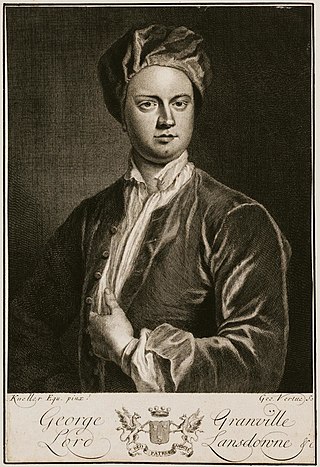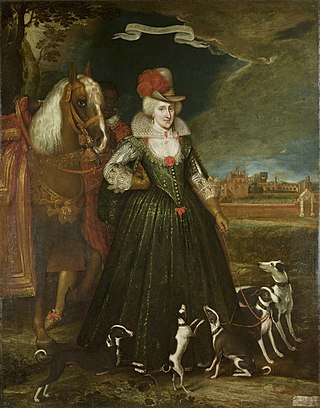Related Research Articles

Daniel Defoe was an English writer, merchant, journalist, pamphleteer, social critic, and spy. He is most famous for his novel Robinson Crusoe, published in 1719, which is claimed to be second only to the Bible in its number of translations. He has been seen as one of the earliest proponents of the English novel, and helped to popularise the form in Britain with others such as Aphra Behn and Samuel Richardson. Defoe wrote many political tracts, was often in trouble with the authorities, and spent a period in prison. Intellectuals and political leaders paid attention to his fresh ideas and sometimes consulted him.

William Harvey was an English physician who made influential contributions in anatomy and physiology. He was the first known physician to describe completely, and in detail, the systemic circulation and properties of blood being pumped to the brain and the rest of the body by the heart, though earlier writers, such as Realdo Colombo, Michael Servetus, and Jacques Dubois, had provided precursors of the theory.

Anne Oldfield was an English actress and one of the highest paid actresses of her time.

Sir Richard Blackmore, English poet and physician, is remembered primarily as the object of satire and as an epic poet, but he was also a respected medical doctor and theologian.
Barton Booth was one of the most famous dramatic actors of the first part of the 18th century.

Jean Petitot was a Swiss enamel painter, who spent most of his career working for the courts of France and England.

Thomas Muffet was an English naturalist and physician. He is best known his study of insects and arthropods in regard to medicine, his support of the Paracelsian system of medicine, and his emphasis on the importance of experience over reputation in the field of medicine. He was an Anti-papist due to his Puritan beliefs.

George Granville, 1st Baron Lansdowne PC, of Stowe, Cornwall, was an English Tory politician who sat in the English and British House of Commons from 1702 until 1712, when he was raised to the peerage as Baron Lansdown and sat in the House of Lords. He was Secretary at War during the Harley administration from 1710 to 1712. He was also a noted poet and made a name for himself with verses composed on the visit of Mary of Modena, then Duchess of York, while he was at Cambridge in 1677. He was also a playwright, following in the style of John Dryden.

Sir Théodore Turquet de Mayerne was a Genevan-born physician who treated kings of France and England and advanced the theories of Paracelsus.

John Smith (1656–1723) of Tedworth House, Hampshire, was an English politician who sat in the English and British House of Commons between 1678 and 1723. He served as Speaker and twice as Chancellor of the Exchequer.
Josiah Franklin Sr. was an English businessman and the father of Benjamin Franklin. Born in the village of Ecton, Northamptonshire, England, Josiah was the ninth child of blacksmith Thomas Franklin, and his first wife, Jane White. Thomas was the son of Henry Franckline and Agnes Joanes. Thomas Franklin remarried and had more children. Josiah Franklin worked as a fabric dyer in Ecton. Franklin immigrated to the American colonies in 1682. He married twice and had 17 children: ten boys and seven girls. In Boston, he was a member of the Congregational Old South Church where he served as a tithingman.

William Paulet, 4th Marquess of Winchester was an English nobleman, the son of William Paulet, 3rd Marquess of Winchester and Anne or Agnes Howard. He was styled Lord St. John from 1576 to 1598. He was summoned to Parliament on 16 January 1581 in his father's barony as Lord St. John. On 24 November 1598, he succeeded his father as 4th Marquess of Winchester. Paulet experienced great financial difficulties arising from his magnificent style of living and his lavish entertainment of Elizabeth I at Basing House.
George Stanhope was a clergyman of the Church of England, rising to be Dean of Canterbury and a Royal Chaplain. He was also amongst the commissioners responsible for the building of fifty new churches in London, and a leading figure in church politics of the early 18th century. Stanhope also founded the Stanhope School in 1715.
James Primrose or Primerose M.D. was an English physician, an opponent of William Harvey's theory of the circulation of the blood.
Elizabeth Norris, 3rd Baroness Norreys of Rycote, suo jure was an English noblewoman. She was the wife of Edward Wray, Groom of the Bedchamber to King James I of England, with whom she eloped in 1622, and incurred the king's displeasure as she was his ward. Elizabeth and her elopement was allegedly the inspiration for Orlando Gibbons Fantazies.
John Shower (1657–1715) was a prominent English nonconformist minister.

William Elder, was a Scottish engraver who worked in London, where he was employed mainly by booksellers.

Sir Thomas Powys, of Henley, near Ludlow, Shropshire and Lilford cum Wigsthorpe, Northamptonshire, was an English lawyer, judge and Tory politician, who sat in the English and British House of Commons between 1701 and 1713. He was Attorney General to King James II and was chief prosecutor at the trial of the Seven Bishops in June 1688. He served as Justice of the King's Bench from 1713 to 1714, but was dismissed.
John Graham, 4th Earl of Montrose (1573–1626) was a Scottish nobleman, Earl of Montrose from 1608 to the 1620s. He was for a time Lord President of the Privy Council of Scotland.

Anne of Denmark (1574-1619) was the wife of James VI and I. She visited Bath, Somerset in the belief that drinking and bathing in mineral waters could improve her health. The warm springs at Bath had been used for medicinal purposes since Roman times. During her progresses to Bath she was entertained at country houses along the way. The court physician Théodore de Mayerne left extensive notes in Latin describing his treatment of Anne of Denmark from 10 April 1612 to her death. Primarily, she was seeking help for gout or dropsy, a swelling of the legs and feet which made walking difficult. Her companion and servant Jean Drummond described an occasion when the queen was unable to set her swollen foot on the ground. During these progresses, Anne of Denmark also promoted the image of the Stuart monarchy.
References
- ↑ Joseph Browne, Theo. Turquet Mayernii Opera medica (London, 1701)
- ↑ Brian Nance, Turquet de Mayerne as Baroque Physician: The Art of Medical Portraiture (Amsterdam, 2001), p. 35.
![]() This article incorporates text from a publication now in the public domain : "Browne, Joseph (fl.1706)". Dictionary of National Biography . London: Smith, Elder & Co. 1885–1900.
This article incorporates text from a publication now in the public domain : "Browne, Joseph (fl.1706)". Dictionary of National Biography . London: Smith, Elder & Co. 1885–1900.
This article relies largely or entirely on a single source .(February 2011) |